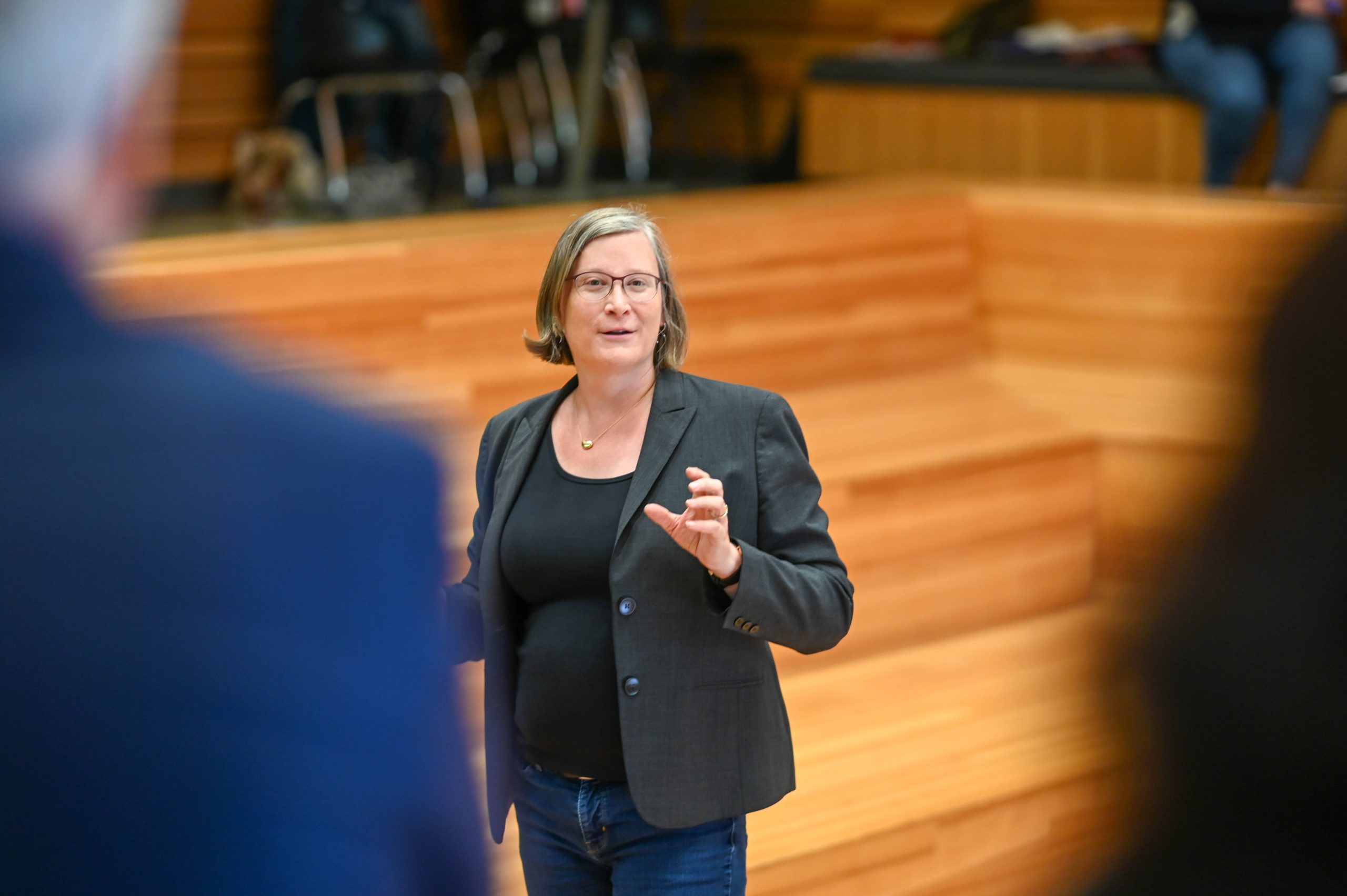From UFV Now
Dr. Lenore Newman cares deeply about food security, and she believes new technologies are key to ensuring Canada’s food production remains strong even as climate change intensifies. Global food production is suffering in the face of droughts, flooding, geopolitical instability, and other threats, and solutions are needed.
“Actively growing our innovation portfolio in agri-food is needed if Canada is to be resilient in the face of these threats over the next two decades,” says Lenore, director of UFV’s Food and Agriculture Institute. “Canada must lead.”
In her role as chair of the Council of Canadian Academies expert panel on atypical food production technologies for Canadian food security, Lenore has contributed heavily to a new report on food security that was released in late November. Sponsored by the Canada Research Council, The Next Course is a 191-page document that draws heavily on the expertise of Lenore and 10 other panelists, making the case for Canada to become a “living laboratory where the world’s food future is born.”
The report introduces cellular agriculture, defining it as “the field of growing agricultural products directly from cell cultures instead of using livestock.” It discusses genomics as well as digitalization -the role automation, robotics, and AI may play.
While the idea of growing cultured meat from the cells of animals might take some getting used to, Lenore says the agriculture industry has a long history of adopting new technologies. At one point irrigation, crop rotation, and growing food in controlled environments were cutting-edge concepts.
She adds that new technologies are meant to complement, and not replace, conventional methods of food production.
“As an agri-food superpower, Canada has tremendous potential to lead the world in novel food-production methods while future-proofing its own food system,” Lenore suggests, adding that Canada is currently falling short. “Understanding the potential benefits, drawbacks, and barriers to implementation of these new atypical food production technologies is instrumental for guiding developers, investors, decision-makers, and the public in making informed choices moving forward.”
For new technologies to take flight, the report suggests conditions must be right. That includes infrastructure, community-led development, government policy coordination, skills development, funding, and access to renewable and affordable energy sources.
Lenore hopes The Next Course makes a compelling case for why new technologies are necessary, and the decision makers reading it feel a sense of urgency.
“We are not immune to emerging threats to the continued stability and sustainability of our food system,” she says. “We are in a race to produce more food, with fewer inputs, while respecting cultural needs and ecological limits.
“Food is many things, but it is never boring.”
Lenore worked alongside fellow panelists Dr. Yuxiang Chen, Stephanie Cook, Dr. Martine Dorais, Dr. Evan Fraser, Dr. Charles Nicholson, Dr. Henry Penn, Dr. Tammara Soma, Alison Sunstrum, Alex Turkewitsch, and Dr. Rene Van Acker.

